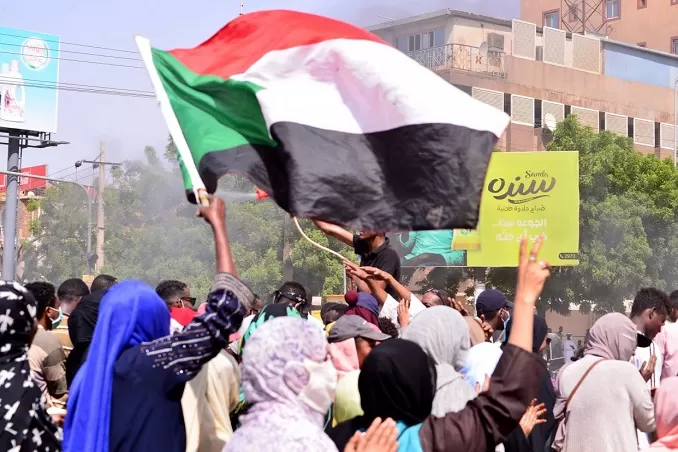

thousands of sudanese marched in khartoum on christmas day in anti coup rallies
![]()
![]()
At least 48 people have died in crackdowns during weeks of protests, and Khartoum’s state governor has warned that security forces “will deal with those who disobey the law and create disturbances.” Demonstrators gathered outside the presidential palace in Khartoum, which has been under military rule since General Abdel Fattah al-Burhan seized power on October 25. Burhan detained civilian leader and Prime Minister Abdalla Hamdok for weeks before releasing him on November 21 as part of a deal that promised elections in July 2023.
Many of Hamdok’s pro-democracy followers were angered by the decision, which they saw as creating a veneer of legitimacy for Burhan’s coup. Online protesters have enlisted the help of supporters with slogans such as “no negotiations” with the army. Witnesses reported seeing demonstrators marching on the streets of Madani, a town 150 kilometers (more than 90 miles) to the south, in addition to gatherings in Khartoum and its environs.
Security personnel used shipping containers to block the bridges that connect Khartoum to the cities of Omdurman and North Khartoum across the Nile River, while web monitoring company NetBlocks said that mobile internet was blocked at daybreak on Saturday. Beginning Friday night, activists reported the arrest of numerous colleagues, and Volker Perthes, the UN special envoy to Sudan, asked authorities to “protect” rather than “halt” the protests. Perthes stated Saturday that “freedom of expression” is a basic right that includes “complete access” to the internet. “No one should be detained simply because they want to protest peacefully.”
The Doctors’ Committee, which is part of the pro-democracy movement, said, “We attract the attention of the world and ask them to follow what is happening in Sudan on the topic of the revolutionary movement for freedom and democracy.” In recent rallies, thousands of people have gathered outside important government facilities, including parliament, the presidential palace, and the army headquarters. Khartoum’s governor warned: “Approaching or attacking buildings of strategic significance is punishable by law.”
Crowds launched a “sit-in” protest outside the presidential palace on the third anniversary of the enormous demonstrations that led to the downfall of veteran strongman Omar al-Bashir.
Security personnel used truncheons and tear gas canisters to disperse the thousands of demonstrators within hours. Activists have condemned sexual assaults during the protests, which the UN claims resulted in the rape of at least 13 women and girls. The EU and the US released a joint statement on Thursday denouncing the use of sexual abuse “as a tactic to drive women away from demonstrations and stifle their voices.”
Sudan, one of the poorest countries on the planet, has a long history of military coups, with only brief periods of democratic administration since its independence in 1956. According to the UN Office for the Coordination of Humanitarian Affairs, over 14 million people, or a third of Sudan’s population, will require humanitarian assistance next year, the highest level in a decade. More protests are expected on December 30, according to activists.
Kenyan sprint star Ferdinand Omanyala finished second at the opening race of the Diamond League in Xiamen, China, on Saturday.…
The incessant rains have caused flooding in Durban and its neighboring areas. It has disrupted several core areas, with a…
Cross-border activity suffered vast disruption when the new ban started at midnight Thursday with its direct impact on border checkpoints…
South African Bank fined R700,000 after determining the institution misrepresented a credit product as an investment opportunity. Following its December…
EA Sports shows that Toronto Maple Leafs will stop their 58-year title wait by beating the Colorado Avalanche in seven…
Pope Francis, the first Latin American pope of the Roman Catholic Church, passed away in the morning of his 88th…
This website uses cookies.